- 1st Full Post then Grid
- About
- About Layout 2
- Cart
- Cart
- Classic full width blog
- Classic full width blog
- Contact Us
- Full Width Page
- Global Fonts and Colors
- Grid layout
- Grid layout
- Grid Layout full width
- Grid Layout full width
- Home
- List Layout
- List Layout
- List Layout full width
- List Layout full width
- Mixed Media Makers
- My Account
- My account
- Podcast
- Portfolio 2 columns
- Portfolio 3 columns
- portfolio 4 columns
- Privacy Policy
- Promo Box Page
- Sample Page
- Sample Page
- Shop
- Shop
- Sidebar Page
- Typography
- Typography
- 1st Full Post then Grid
- About
- About Layout 2
- Cart
- Cart
- Classic full width blog
- Classic full width blog
- Contact Us
- Full Width Page
- Global Fonts and Colors
- Grid layout
- Grid layout
- Grid Layout full width
- Grid Layout full width
- Home
- List Layout
- List Layout
- List Layout full width
- List Layout full width
- Mixed Media Makers
- My Account
- My account
- Podcast
- Portfolio 2 columns
- Portfolio 3 columns
- portfolio 4 columns
- Privacy Policy
- Promo Box Page
- Sample Page
- Sample Page
- Shop
- Shop
- Sidebar Page
- Typography
- Typography

Tucson Gem & Mineral Shows Attract Collectors and Then Some!
Tucson, Arizona, a city found in the beautiful Sonoran Desert, transforms into a global haven for gemstone and mineral enthusiasts every late January early February. What began as a small exhibition in the 1950s has burgeoned into the largest and most renowned gathering of its kind.
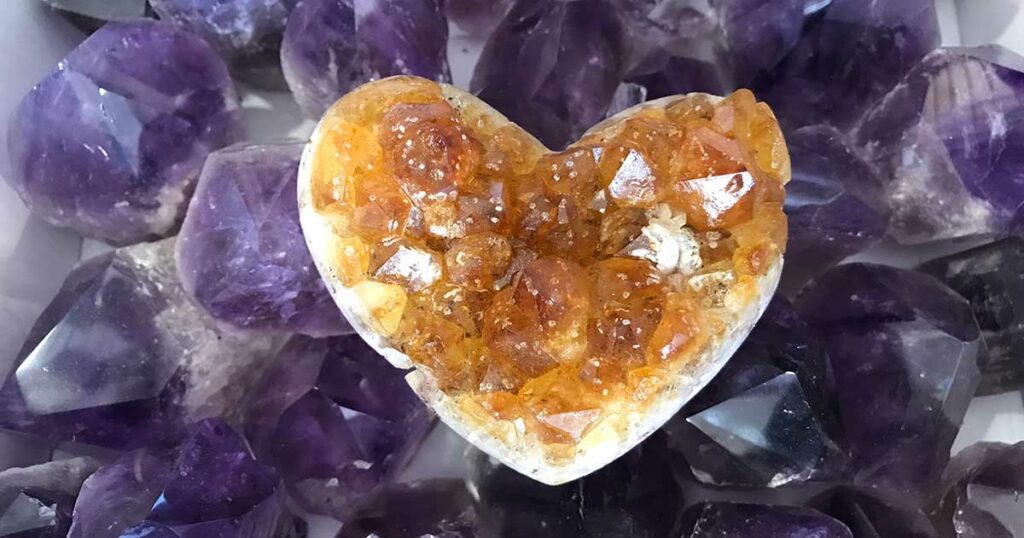
The Genesis
The Tucson shows date back to the mid-20th century when the Tucson Gem and Mineral Society (TGMS) laid the cornerstone. In 1955, the TGMS organized the first showcase, intended primarily for local collectors and enthusiasts. Held at a local school on East Glenn, this humble event laid the foundation for what would eventually evolve into 45+ shows that take over the whole city!
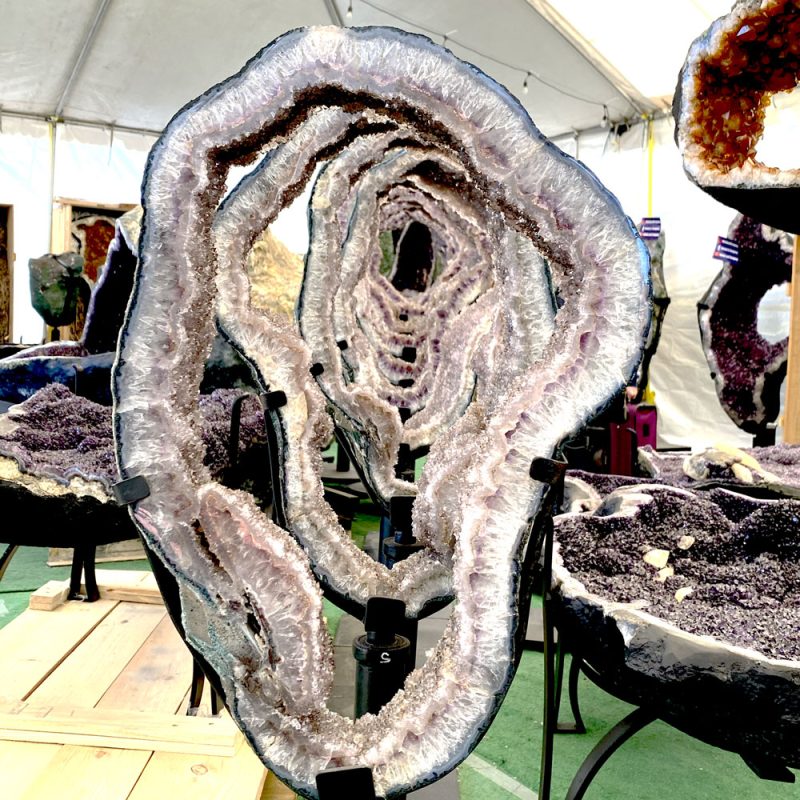
Over Time
The first Tucson Gem & Mineral club show was a success and moved to the local fairgrounds for the next decade+. The show continued to grow, attracting more exhibitors and more visitors. In 1960, the curator for the Smithsonian was invited to exhibit—and he said “yes!” The curator brought with him an exhibit and, it is said, this changed the course of the shows from their forward.
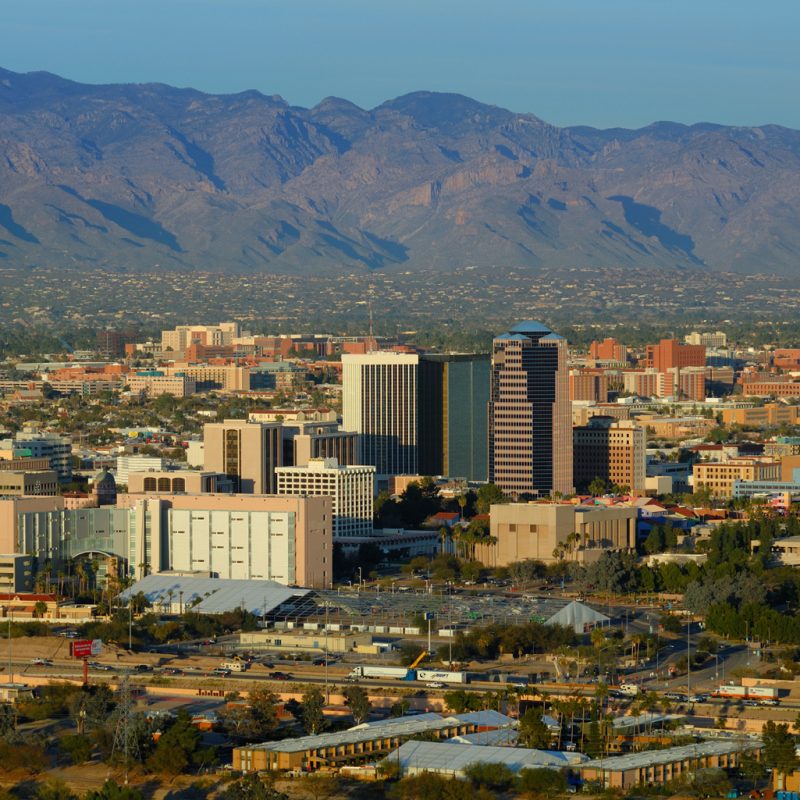
Pivotal Growth
By 1970 there were 100 exhibitors and $2 million worth of collections on display. In 1973 the Tucson Gem and Mineral Society hosted their club show at the Tucson Convention Center. This was a significant milestone and offered them space to accommodate the swelling number of participants, including international vendors and attendees. Change from here forward was exponential.
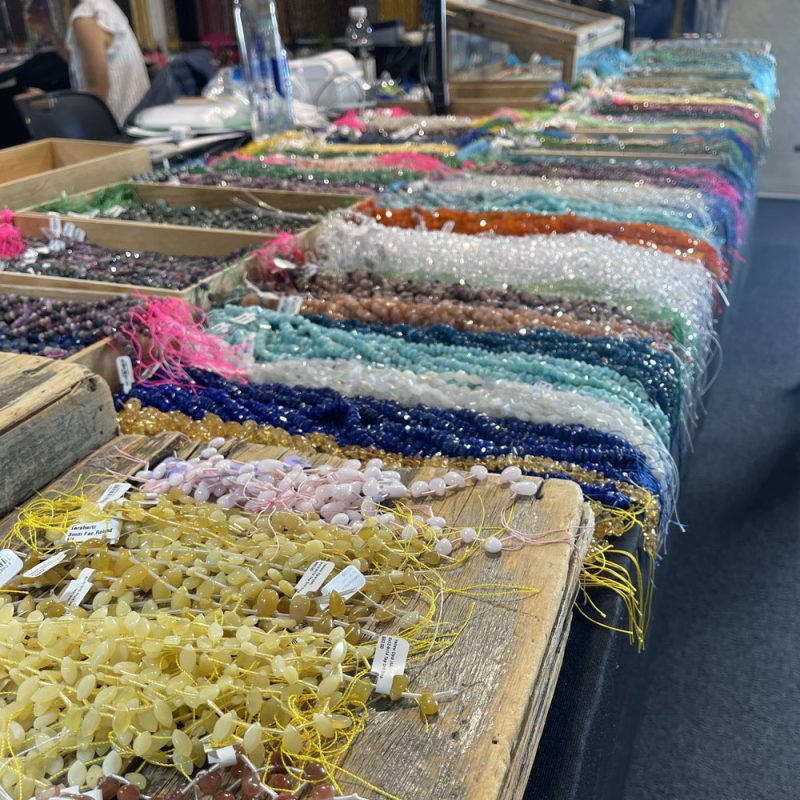
Time Marches On
Each year, the Tucson Gem and Mineral Shows continue to evolve, welcoming new technologies and trends. The rise of e-commerce and online platforms has influenced the way business is conducted, enabling the show’s global impact to extend far beyond its physical location. However, the in-person experience remains irreplaceable, as it offers a tactile and immersive encounter with all that can be found in this beautiful city.
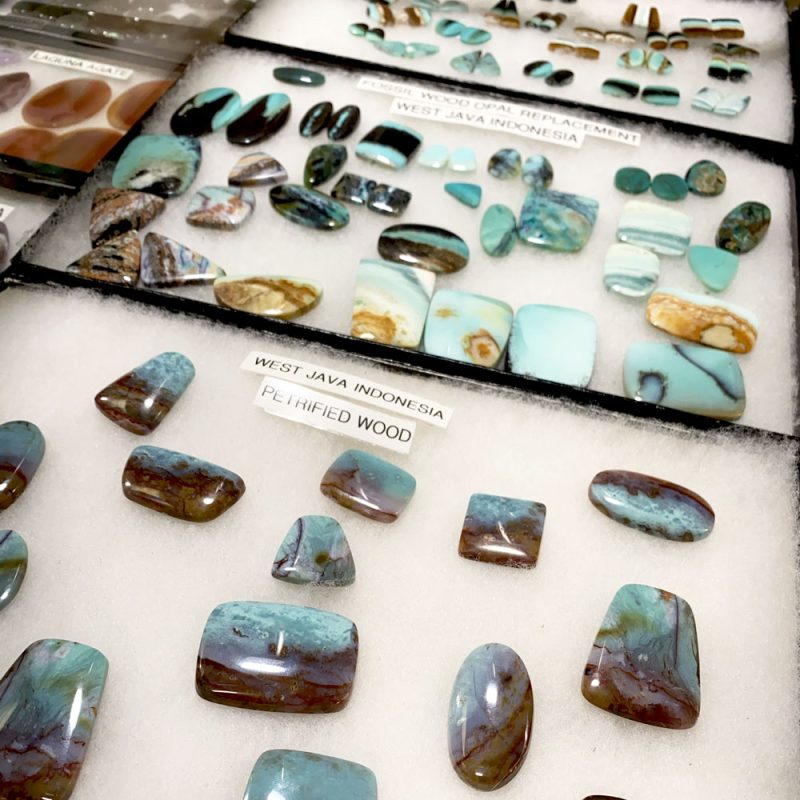
Nature on Display
The shows also celebrate the artistic aspect of minerals and gems, showcasing the natural specimens as well as craftsmanship of lapidary artists who transform raw stones into juicy pieces of art ripe for your next jewelry making endeavor. From intricately carved cameos to beautifully faceted gemstones, these creations add a layer of artistry to the event, elevating it beyond a mere trade show.
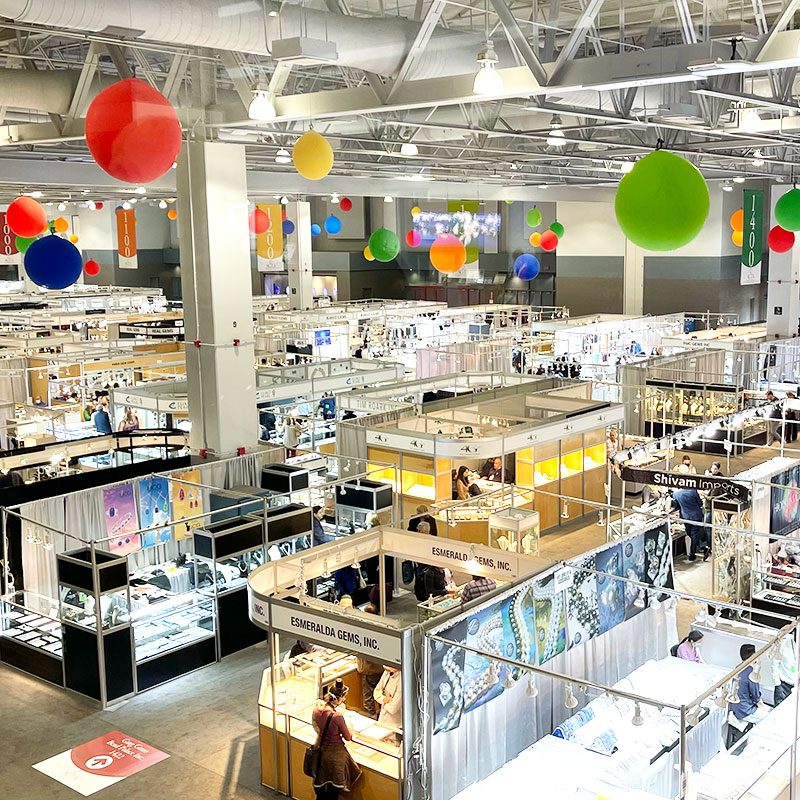
Culmination
To this day the shows attract visitors, collectors, and dealers from every corner of the world. The Tucson Gem and Mineral club show is still a cornerstone of the Tucson Gem and Mineral shows and it is still held at the Tucson Convention Center which also houses the American Gem Trade Association (AGTA) show. The AGTA show is held early in the weeks the shows can be attended and the TGMS shows runs the last few days of the cycle and it remains a “must see!”
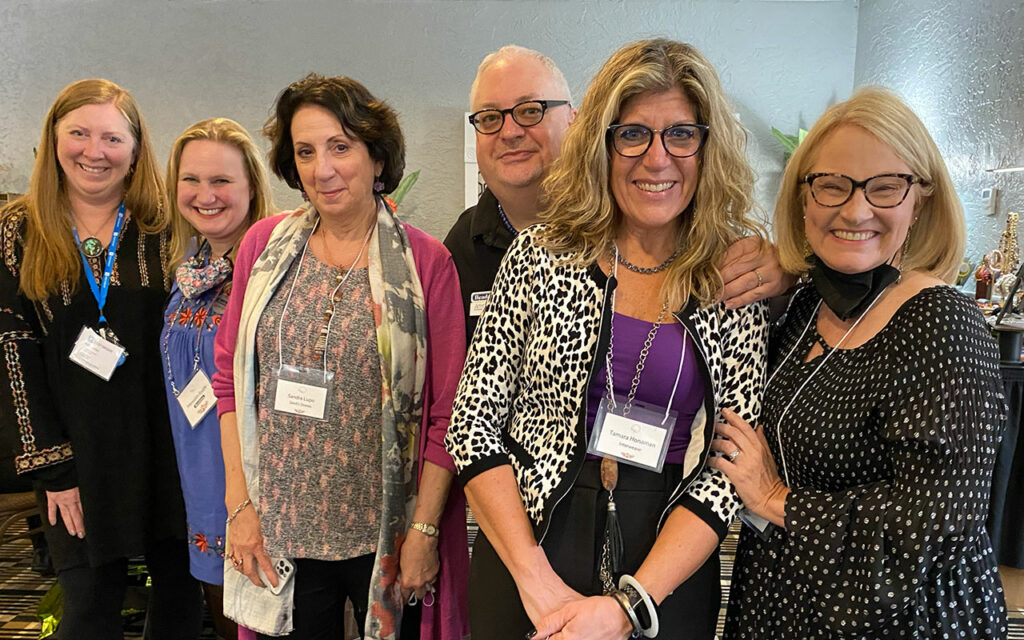
Tucson Gem and Mineral Shows Offer More Than Gemstones
The Tucson Gem and Mineral Shows (as a collective) is more than just a commercial event. The shows are a melting pot of cultures, knowledge, and artistry. The shows play host to a diverse array of exhibitors, from individual collectors, dealers showcasing their finest gemstones and minerals, finished jewelry pieces as well as raw stones, fossils, lapidary art, and the latest finds, fresh from the Earth. You can also learn how to make jewelry while in town!
Tucson’s geographical setting plays a significant role in the show’s success. A hub for “snowbirds,” there are many more who like to escape winter and flock to the desert southwest! There is also great food to be had, friends to connect with, art, and culture, too.
For a more in-depth look, be sure to read Terri Haag’s account of the shows history.


